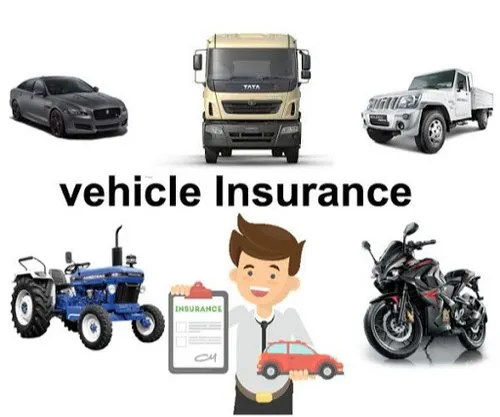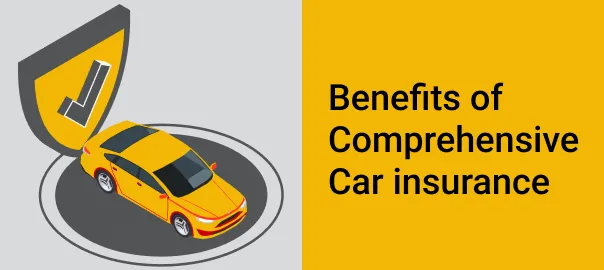Introduction
In today’s world, businesses rely heavily on vehicles for operations, whether it’s for delivery, transport, or client meetings. However, with the growing number of business vehicles on the road, the need for proper insurance coverage is more urgent than ever. This is where car insurance for business vehicles comes into play. Whether you are a small business owner or part of a big organization, ensuring that your vehicles are properly insured is crucial to safeguarding your assets, employees, and reputation.

What is Car Insurance for Business Vehicles?
Business vehicle car insurance is specifically planned to cover vehicles used for commercial purposes. It differs significantly from personal car insurance in terms of coverage options, liability, and risk management. While personal car insurance covers many things like personal driving, business vehicle insurance extends to the unique needs of a business environment, such as transporting goods, providing services, or using vehicles as part of your business operations.
Why is car insurance for business vehicles important?
It’s not just a legal requirement; it’s also about protecting your business from the financial result of accidents, stolen, and damage to vehicles. Business vehicle insurance secures that you will not suffer the full cost of an accident or unexpected damage, whether you are an entrepreneur with a single delivery van or the owner of many trucks.
1. Legal Requirements: Many states and countries mandate that vehicles used for business purposes support the insurance.
2. Financial Safety: Insurance helps protect your business from unexpectedly high repair costs or legal fees in the event of an accident.
3. Peace of Mind: Knowing your vehicles are covered gives you the peace of mind to focus on running your business without worrying about potential risks.
Types of Car Insurance for Business Vehicles
There are many types of business vehicle coverages, each imparting particular safety for many situations. Let’s destroy them down:
1. Liability Insurance: it will cover damages to different human beings assets or accidents because of your commercial vehicle. This is commonly required by means of regulation.
2. Comprehensive Insurance: it will protect against non-collision damages consisting of robbery, vandalism, or natural incidents.
3. Collision Insurance: It will cover restoration expenses for your car if you’re concerned in a collision, regardless of who’s at fault.
4. Uninsured Motorist Coverage: Protects your concern about the car on the occasion you’re worried about an accident with an uninsured driver.
Who Requires Business Auto Insurance?
Commercial vehicle insurance is required for any organization that uses cars for operational reasons; large corporations are not the only ones who require it. Whether you utilize your company vehicles for staff transportation, cargo transportation, or client meetings, they are vulnerable to risks that require specialized coverage.
1. Small Business Owners: Insurance coverage is still necessary even if your company only uses one or two vehicles.
2. Large Companies: Businesses that own a number of vehicles should make sure that each one is properly insured, particularly if they are involved in logistics or transportation.
components of an element That Influence Business Vehicle Auto Insurance Rates
The cost of your business vehicle insurance can be caused by many factors, including: Vehicle Type and Model: The make, model, and age of your vehicles affect the premiums.
– Driving History: A clean and good driving record may result in lower insurance rates.
– Business Location and Risk Factors: The region where you operate can affect risk levels and, consequently, insurance costs.
– Annual Mileage: The greater the number of miles driven by your vehicles, the greater the risk, which may result in higher premiums.
-
How to Select the Best Insurance for Your Business Vehicle
- Understanding your requirements and ensuring that the coverage matches the risks your business faces are necessary for selecting the appropriate policy.
- evaluating Your Needs: Consider how often your vehicles are used for business, the type of goods or services they transport, and the number of drivers.
- Comparing Coverage Options: Different insurance providers offer varying levels of coverage. Make sure to compare policies based on coverage limits, exclusions, and costs.
- Working with Insurance Brokers: A broker can help you navigate the various insurance providers and find the best for your business.
Benefits of Business Vehicle Car Insurance

1. Protection Against Accidents: Insurance protects against the financial consequences of accidents, including vehicle repair costs and medical expenses.
2. Coverage for Business Assets: Your vehicles are valuable assets, and insurance ensures you don’t have to bear the full loss in case of damage.
3. Employee Coverage: If your employees are driving business vehicles, insurance can cover their medical expenses and liabilities in case of an accident.
How much does insurance for business vehicles cost?
The cost of business vehicle insurance can vary greatly depending on the type of business, the number of vehicles, and the level of coverage. Generally:
– Small Business: A single vehicle for a small business could cost anywhere from $500 to $2,000 annually, based on the policy and risk factors.
– Larger Fleets: Businesses with fleets of vehicles may pay significantly more.
Factors such as the vehicle’s make and model, driver history, and annual mileage all play a role in determining premiums. To decrease expenses, businesses can look into bundling policies, increasing deductibles, or improving their drivers’ safety record.
What Does Business Vehicle Insurance Cover?
Business automobile insurance commonly covers the following:
– Vehicle Damage and Repairs: Whether the automobile is broken in a collision or by way of a natural disaster, your coverage can cover repairs or substitute fees.
– Injury and Medical Costs: Coverage for scientific payments attributable to injuries related to your commercial enterprise vehicle.
– Theft and Vandalism: Protection if the vehicle is stolen or damaged by using vandals.
How to File a Claim for Business Vehicle Insurance
If a coincidence takes place, it’s critical to realize a way to document a declaration. Here’s a trendy definition:
1. Report the Incident: Inform your coverage employer about the twist of fate as soon as viable.
2. Provide Necessary Documentation: Submit relevant files, which include accident reviews, pix, and details of the incident.
3. Follow Up: Keep track of the claims system and offer any extra facts the insurer may additionally require.
Tips for Lowering Car Insurance Costs for Business Vehicles
There are several ways to reduce your premiums:
1. Maintain a Safe Driving Record: Encourage employees to drive safely and securely to avoid accidents and claims.
2. Choose the Right Coverage: Only purchase the coverage you need for your business.
3. Install Safety Features: Adding GPS tracking, anti-theft devices for your vehicles, and other safety measures can lower premiums.
Common Myths About Business Vehicle Insurance
1. “Personal Insurance is Enough”: Using personal insurance for business vehicles is illegal in many cases and doesn’t offer the necessary coverage.
2. “All Policies Are the Same”: Insurance policies vary significantly based on coverage, so it’s essential to compare options very carefully.
Real-Life Examples of Business Vehicle Insurance in Action
Consider a local courier business that experienced a collision during a delivery. With comprehensive business vehicle insurance, they were able to quickly cover repair expenses and continue operations without missing a beat.
Conclusion
Car insurance for business vehicles is important to ensuring the safety of your services, employees, and financial stability. With the right coverage, you can mitigate risks, comply with legal requirements, and maintain peace of mind knowing your vehicles are protected.
FAQs
1. What is the Difference Between Personal and Business Vehicle Insurance?
Personal coverage covers non-public use of a vehicle, while business coverage covers vehicles used for industrial purposes.
2. Can I Use My Personal Car for Business Purposes?
You can use your non-public automobile for commercial enterprise; however, it’s now not encouraged except you have the appropriate coverage.
3. What Happens if My Business Vehicle Gets into an Accident?
Business automobile insurance will cover restore fees, liability, and scientific charges depending on the coverage.
4. Does car insurance for business vehicles cover employees?
Yes, maximum policies cover personnel driving the commercial enterprise automobile as a part of their job.
5. Can I Add Multiple Vehicles to One Business Insurance Policy?
Yes, many insurance companies permit businesses to bundle a couple of automobiles under one coverage, probably saving money.
1 thought on “Car Insurance for Business Vehicles”